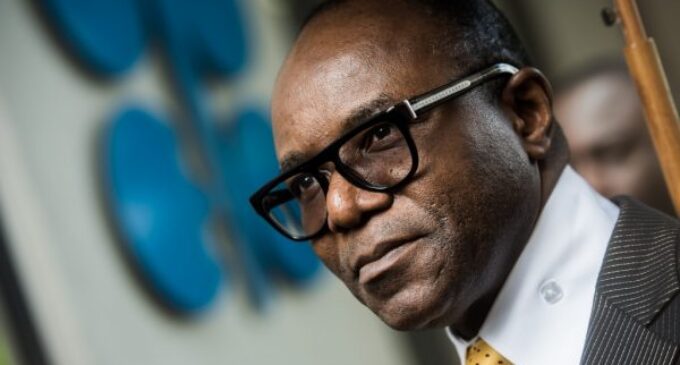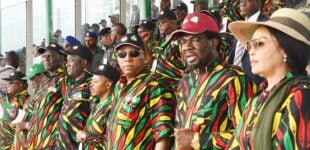Port Harcourt refinery: Ibe Kachikwu’s dreams are Buhari’s nightmares?

Did you know that Muhammadu Buhari is the longest-serving minister of petroleum in Nigeria’s history? He has been minister of petroleum from November 2015 to date. Before then he occupied the same position for about 27 months in the 1970s. Cumulatively, Buhari has been minister of petroleum for eight years. This information will be useful as we go along.
Reporting Nigeria’s oil and gas industry is not just a job for me, it is a major part of my contribution to Project Nigeria. I am resolute about Nigeria’s bright future, but if that future would ever see the day, this sector I believe must transition appropriately into the realities of the 21st century. And this is why I write.
Here is a short story: In 2015, President Muhammadu Buhari appointed the vice chairman and general counsel of ExxonMobil in Nigeria, Ibe Kachikwu, as the group managing director of the Nigerian National Petroleum Corporation (NNPC) and later minister of state for petroleum. Kachikwu, who was clearly in-tune with the realities of the oil market in 2015 — being a global player himself — was so pumped about what could be achieved in the sector he was appointed to lead.
In no time, Kachikwu said the state would sell off the refineries and let private entities with the capacity to repair and run it without burning public funds manage it. Industry experts agreed, but Buhari did not. The President does not like the idea of selling “his refineries”.
Let’s back up a bit: Buhari was minister of petroleum in 1977 when the NNPC was established. He became the first chairman of the state-run oil company. He built oil storage depots and pipelines across the nation, and ran a relatively profitable Port Harcourt refinery. That Buhari seemed to have had Nigeria’s oil assets in good control.
Forty-four years on, that refinery has changed drastically; the pipelines have become a source of fortune for vandals, the equipment that make up the refinery have aged a lot, decades of poor maintenance have been recorded. The refinery is now far from what Buhari left as a minister in his first coming. But the president, who doubles as our longest-serving oil minister, seems to have sentimental attachments to the refineries, and it would be a nightmare for him if the refineries are sold. Hence, the move to always repair, turnaround, or rehabilitate it.
IBE KACHIKWU’S DREAMS
Kachikwu is one of those public officers I have followed in and out of office. I read almost every story about him. Since he left office, I have followed still. His battle with cancer has been humbling for me. Despite the battle with cancer, Kachikwu recently launched four books on the oil and gas sector and how it can be improved for the future.
I digressed.
Following Buhari’s refusal to sell the refineries, the Kachikwu-led NNPC began the popular 90-day turnaround maintenance to get the refineries working again. The deadline was for December 2015. In the three months before the turnaround, the refineries lost about N172 billion. Many more billions were lost in 2016.
“We supply crude and they [the refineries] start for one day and then they shut down again because the CD unit has packed up. So, it is one thing after another,” Kachikwu said in May 2016. He resolved again to privatise the refineries in 12 months.
You know how the story ends; Kachikwu dreams of privatising the refineries and seeing them run profitably did not come to life. But one thing Kachikwu had achieved was to make sure every Nigerian interested can see how well or how bad the refineries performed. He instituted the monthly financial reports which show us how the refineries fare.
And based on those reports, the refineries did not produce a litre of petrol from September 2019 to September 2020. In essence, people wake up in the morning, get into official vehicles and go to work at the refinery, produce nothing, and get paid hard cash at the end of the month. As early as 2016, overhead was at N6.94 billion a month.
FORTY LEADERS SET $1.5bn ABLAZE
About 45 people make up Nigeria’s Federal Executive Council; President, VP, SGF, ministers and a few others. These people decided last week that after running the refineries at a loss for the most part of the last six years, it has now become wise to spend $1.5 billion in fixing one of the refineries.
Let me say this without mincing words: They simply want to set $1.5 billion on fire.
It would even make sense to set money on fire if you have the money. In this case, Nigeria will borrow $1.5 billion and set it on fire. According to Mele Kyari, the NNPC GMD, rehabilitation will take 18 months. But let me explain it better: It will take 18 months after we get the funds! So, if this process goes on as fast as expected, we are looking at 2023 before the refinery gets working again. He also shares Kachikwu’s dream that the private sector should be allowed to run the refineries, using the NLNG model.
Before this happens, the members of staff of the refineries will keep getting paid, the refineries will keep posting losses in billions, and Nigeria will keep burning money on two fronts.
Need I speak on the fact that Dangote refinery would likely be selling petrol at the end of 2021 or 2022. So what market is this rehabilitated Port Harcourt refinery going to serve in 2023?
Follow Mayowa on Twitter @OluwamayowaTJ
















Thanks for the “insider” story here. It is worthy of interest that the NLNG Model was mentioned. The story would be far more interesting when we hear how the NLNG was ‘allowed’ to run. This is because from 1999 when the civilian government NLNG was literally starved of funds too run possibly to make The Privatisation more palatable to Nigerians.
This simply7 makes comparisms more mundane for Nigerians to understand that politicsed military are still calling the shots. On this president Buhari isn’t just a lone shark. He is just one among many predators n the Nigerian political environment..
I hope someday we can all speak the truth to ourselves that these looted funds won’t be able to afford oxygen in this country if things continue this way. And hitherto shall the over 170million residents run to for help?
Your write up is short sighted using your own yardstick. You cited the CD being the issue because it packs up after one day. You conveniently forgot to say if the repairs being planned now was performed in the past 6 years. The people you accuse of driving to work and getting paid for nothing are keeping the refinery alive. It may not be producing refined products but that does not mean that parts are being serviced and oiled which will make the refinery easy to repair. Tell us this please Mr Know All – What stops the same people that can repair the refinery after they buy it repairing it when its still owned by the government?
I don’t get you. Did you just say the refineries are alive because parts are being serviced and oiled? Even without producing any refined petroleum products?
I think it is only just and reasonable that the refineries be privatized and not spend the huge sum which we all, even the president, know that there won’t be result. If we spend the money for turnaround maintenance, then something is really wrong with us and leadership in this country.